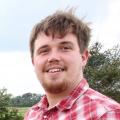A FORMER Carlisle city councillor has moved to address concerns surrounding the coronavirus vaccine in the BME community.
Abdul Harid has spoken out to encourage people to accept the offer of the Covid jab when they get it.
Official figures suggests that the coronavirus pandemic is having a disproportionate effect on people from BME backgrounds, and Mr Harid is concerned that the level of vaccine uptake isn't as high as it should be.
He believes that misinformation on the vaccine is rife on social media.
Mr Harid, who was recently elected as the BME officer for Carlisle Constituency Labour Party, said: "Over 16 million people have been vaccinated. The BME community are at a risk from this virus and are hesitant to take the vaccine and are rejecting it.
"The reasons are there's conspiracy theories and fake news out there that the vaccine contains alcohol and animal products.
"There are also concerns that it will damage the body and it's been developed too quickly and rushed out, and people aren't trusting it.
"I've had phone calls from people saying they've seen this and that on Facebook and it's all rubbish.
"Talk to your GP and get clarification if you have any doubts.
Mr Harid served as Carlisle's first Asian councillor when he was elected to serve for the Currock Ward in 2007, and held the position until 2019.
He felt that leaders of BME communities in Carlisle and across Cumbria needed to do more to encourage people to take the vaccine.
He continued: "Faith leaders are saying it is safe to use. People like me need to send out the message to the community and combat the fake news.
"Anyone can put anything out there on social media, it's not concrete evidence or facts or figures going out.
"This vaccine needs to be taken by vulnerable people. It's a health issue. It's important, nothing else is better than your own health - wealth comes and goes.
"This vaccine is safe - when my time comes I will take it.
On Tuesday, the Government added 1.7 million more people to the shielding list following the development of a new model by scientists at Oxford University.
The model looks at risk identifiers for Covid-19, and included ethnicity for the first time.






Comments: Our rules
We want our comments to be a lively and valuable part of our community - a place where readers can debate and engage with the most important local issues. The ability to comment on our stories is a privilege, not a right, however, and that privilege may be withdrawn if it is abused or misused.
Please report any comments that break our rules.
Read the rules hereLast Updated:
Report this comment Cancel